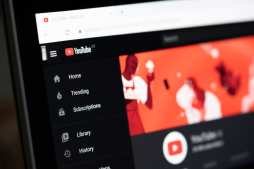The Role of Smartphones in Modern Scientific Methodologies and Experimentation

In the digital age, smartphones have evolved beyond mere communication devices. They have become powerful tools for scientific exploration and experimentation. This article explores how smartphones can enhance modern scientific methodologies, making them accessible to both professionals and amateurs alike.
Smartphones as Data Collection Devices
One of the most significant roles smartphones play in scientific research is their ability to collect data efficiently. Equipped with sensors such as accelerometers, gyroscopes, GPS, and cameras, smartphones can gather real-time information on various phenomena. For example, researchers studying environmental changes can use mobile apps to track air quality or temperature variations over time. Additionally, citizen scientists can contribute valuable data through apps designed for surveys and observations.
Facilitating Remote Sensing and Observation
Smartphones are particularly useful for remote sensing applications. Researchers can utilize their smartphone’s camera capabilities combined with imaging software to analyze samples or monitor wildlife without disturbing natural habitats. This non-invasive approach is vital in conservation efforts where minimizing human impact is crucial. Furthermore, innovative apps allow users to capture high-resolution images of biological specimens or geological formations for further analysis later on.
Enhancing Collaboration Among Scientists
Collaboration has always been at the heart of scientific advancement, and smartphones facilitate this process seamlessly. With communication apps like Slack or research-specific platforms like ResearchGate available on mobile devices, scientists can easily share findings in real-time regardless of geographical barriers. Moreover, shared databases accessed via smartphone applications allow researchers to pool resources efficiently and collaborate on large-scale projects without needing physical meetings.
Conducting Experiments Using Smartphone Apps
Several applications enable users to conduct experiments directly from their smartphones. For instance, chemistry enthusiasts can use virtual labs that simulate chemical reactions through guided protocols right from their phones. Such interactive environments make it easy for educators to teach complex concepts while allowing students hands-on experience with scientific experimentation without requiring expensive equipment.
Educational Opportunities Through Mobile Science Tools
Smartphones are not just about collecting data; they also serve as educational platforms that foster interest in science among students of all ages. With a plethora of educational apps available—from physics simulations to biology quizzes—students are encouraged to engage with content interactively while developing critical thinking skills essential for future scientific endeavors.
In conclusion, smartphones have transformed modern scientific methodologies by making research more accessible than ever before. They empower individuals—from seasoned scientists conducting groundbreaking studies to curious learners exploring the world around them—to harness technology effectively as a tool for discovery.
This text was generated using a large language model, and select text has been reviewed and moderated for purposes such as readability.


